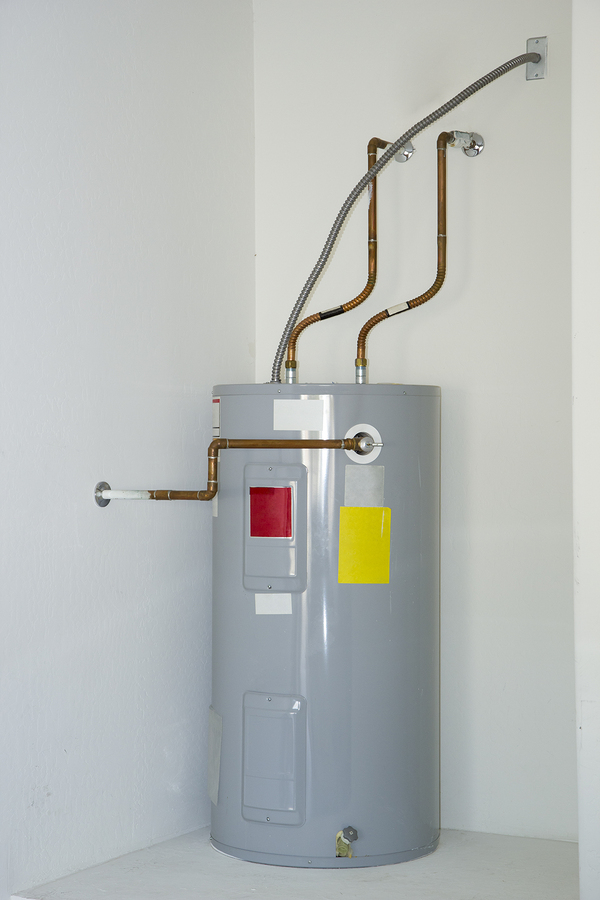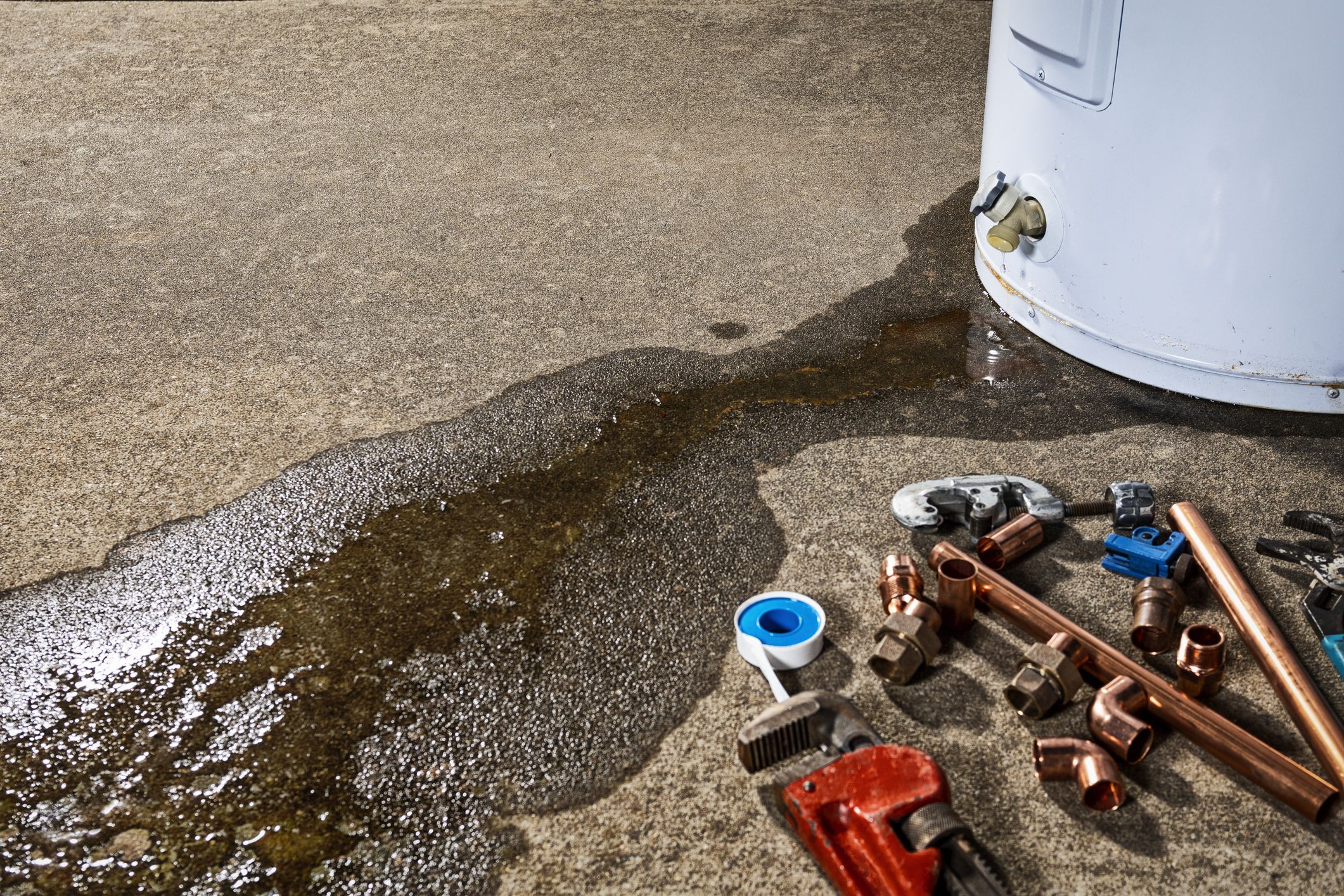Key Steps for Homeowners Dealing with Malfunctioning Hot Water Systems
Key Steps for Homeowners Dealing with Malfunctioning Hot Water Systems
Blog Article
The article author is making several great pointers related to What Do You Do When Your Water Heater Bursts? as a whole in this content directly below.

Whether it lies in the basement or a separate space, damaged hot water heater can create anxiety. A basic device holds 80 gallons, so an overnight leakage will certainly lead to a flooding. This leads to significant residential or commercial property damages with drenched wall surfaces and also floorings. Besides, having no hot water supply is additionally problematic. If you are managing these issues, take note of the following:
Shut Off Power Source
Before calling the plumber, shut off a gas water heater by turning the temperature dial. This is typically situated at the top of the thermostat. If you have a design that works on electric power, switch off the circuit breaker. This will prevent electrocution, specifically if there is a leakage as water is a conductor. Generally, the heating element shuts down when the water strikes a certain temperature level. But with a damaged container, it might malfunction. Cutting it off ensures you remain safe.
Cut Off the Cold Water Supply
Cut off the containers tap water supply from the resource. This goes from your primary water line into the container. When your tank remains in good condition, the cold water quits filling out when the storage tank is complete. However given that it is dripping, the water will remain to stream. Close the shutoff discovered on top of the heating system. Revolve this clockwise to close it off. If you can not locate it or reach it, you need to switch off that main water line outside your residential or commercial property.
Call the Plumber
After doing the first 2 safety and security actions, you have to call your plumber to come right away to take care of a burst water heating unit. There are normally signs that your aging water heater has sediment accumulation in the inside.
Rather, as quickly as you find these indicators, have actually an expert come to examine your water heater give thanks to. Generally, water heaters have a life expectancy of concerning 8 to 12 years.
Tidy up Property
After calling the plumber, record damage by making note and also pictures so you can claim your property owner's insurance policy. From there, begin the prompt cleaning. Secure any type of vital personal belongings to stop more soaking. Remove any standing water to prevent mold and mildew and mildew development. Use that to drain the water if you have a submersible water pump. Otherwise, the traditional container technique will likewise function. Try to wipe out whatever, including wall surfaces and walls. If you have an electric follower and also dehumidifier, keep them running to maintain air circulating. This will certainly help discourage mold and mildew development.
Bear in mind, if you observe any problems with your water heater, call the pros immediately. You can not take this problem gently because a damaged thermostat can elevate water temp to a precariously high degree, resulting in accidental burns. A damaged heating system pressure safety valve can likewise cause a surge. For finest outcomes, get a yearly check so your unit obtains inspected, cleansed, drained, as well as filled up, guaranteeing optimum performance.
Whether it is situated in the basement or a different area, damaged water heating systems can trigger stress. Before calling the plumber, closed off a gas water heater by turning the temperature dial. After doing the first two security actions, you must call your plumber to come right away to take care of a fractured water heating unit. If you have a submersible water pump, make use of that to drain pipes the water. Bear in mind, if you observe any type of concerns with your water heating system, call the pros right away.
Is My Water Heater Broken?
The Water Heater is Old
No appliance will last forever. This includes a home’s water heater. During its lifespan, residents are going to face a situation where a new water heater installation will be necessary. The biggest problem with this is that most people are not sure when their water heater expires. Not knowing this can lead to serious risks if the unit begins to act up due to old age.
Most makes and models of water heaters will last between eight and 10 years. While 10 years is the age when water heater replacement is highly recommended, the need to replace the unit may occur before this time or after. If the unit doesn’t show any symptoms of a problem, it is a good idea to replace it at the 10-year mark (from the manufacture date).
Some of the symptoms that indicate a new unit is needed include rusting, leaks, noises, and a failure to heat up the water. Also, note that not all units have a 10-year life expectancy. The main exception to this rule is that a gas unit will last for six to eight years.
Rusty Heater Inlet Valve or Water
While steel is the strongest material on earth, it does have a weakness – rust. If corrosion occurs on a steel surface, it will begin to spread and eat through the steel in certain areas. On water tanks and pipes that are made of steel, rust is a warning sign of an impending leak.
The issue for many is trying to figure out if the rust is coming from the water heater or the pipes that lead to the faucet. If rust is seen, it is a clear indication that water heater service from the professionals is needed.
If rusty water appears out of the faucets in the bathtub or sink, it likely means a rusty water heater. If there is rust near the water inlet or the pressure relief valve, rust has likely developed inside the tank. If tap water appears rusty, it may be an issue with the pipes.
Strange Sounds from the Water Heater
Are there strange sounds coming from the tank? As a water heater gets older, rumbling noises may develop and get louder and louder as the water in the tank heats up. In homes where large amounts of hot water are used, the issue is likely going to be even more obvious when more serious issues arise. If there is a strange or loud noise coming from the unit, it is probably because of sediment buildup. A good way to remedy this problem is by flushing the heater. If this does not work, then a new unit may need to be installed.
Leaks
As a water heater gets closer to the end of its useful life, there is a higher chance there will be water around the tank. If there is water, this usually means leaks are occurring. Based on where the unit is located in the home, a leak may result in serious property damage.
Leaks are usually caused by expansions in the metal tank. The expansions occur as time passes and as the inside body of the tank is exposed to multiple heating cycles per day. When a fracture forms, the gap will be slight enough to hold the water in; however, in more serious situations, this will not be the case. If the tank is idle, the water will not leak but when the metal expands during each heating system, small amounts of water will get through the gap.

We were made aware of that editorial on Water Heater Repair from a friend on a different blog. Those who enjoyed reading our blog posting plz remember to pass it around. I recognize the value of reading our article about Maintaining & Draining a Water Heater.
Schedule Now! Report this page